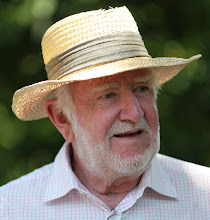2016 has not been the best of years - that is generally agreed. The Middle East has been really bad - I recall visiting Syria a few years ago, as shown in some of the first blogs here. The people were friendly and good looking, the food was great, and Aleppo was an exciting city in the midst of rejuvenation. And Israel has seen fit to use the nearby chaos to grab some more Palestinian territory, potentially adding more fuel to the fire.
And then there have been the political shocks. Britain's decision to leave the European Union was the first. I started out thinking it was a good idea as I learned more about the Union and the gross bureaucracy in Brussels, but as the vote drew near, I changed my mind because of the implications of leaving. Then there was the US Presidency, and amazement that the system could not find candidates of real calibre. The final choice is "interesting", and it remains to be seen if his obvious deficiencies will be overcome by the expertise of his support team. The one ray of light for me is what I would call greater realism about environmental issues. It is just not true that we face catastrophe from more carbon dioxide in the atmosphere, and policies designed to save us from the putative disaster are very expensive and most unlikely to have any detectable effect.
Then in South Africa there has been the growing dysfunction brought about by corruption. The Gupta saga just grows and grows. Zuma should no longer be president - I can no longer refer to him as President Zuma, because he does not deserve the honorific. The longer he stays, the greater is the damage to the ANC, which is the only good side of the story. The local elections this year gave early warning that the next national election is likely to see the ANC majority slashed. The local elections also have given the DA the opportunity show that it really can govern. The accounts for 2015 tell the true tale - in the Western Cape, under the DA, some R30 million was poorly spent or went missing; in Gauteng, under the ANC, the figure was R4.5 billion. To put that in perspective, Gauteng lost the Western Cape's annual loss every two days!
But there are rays of light in the world. One of them is the war on poverty. As Johan Norberg wrote in a recent issue of Sp!ked "At the United Nations Millennium Summit in 2000, the world’s countries
set the goal of halving the 1990 incidence of extreme poverty by 2015.
This was met five years ahead of the deadline. And even though the world
population grew by more than two billion between 1990 and 2015, the
number of people who live in extreme poverty was reduced by more than
1.25 billion people." Today, slightly fewer people live in extreme poverty than in 1870, in spite of the massive increase in population.
Linked to less poverty is a growth in energy consumption. I have a serious paper being reviewed, which links energy consumption to life expectancy. Below a certain level of per capita energy use, life expectancy at birth is less than 50 years; above about four times that consumption, life expectancy is over 70. So if you want, for example, India to start cutting its carbon dioxide emissions, you are in effect asking many of their population to accept an early death. I don't think all the agreements in Paris or elsewhere are going to work.
At the other end of the scale, of course, is the phenomenon of the super rich. They are not many in number, but they hold an inordinate proportion of the world's wealth. Great is the gnashing of teeth over their very existence. Yet ultimately wealth is not a moral issue - it is merely the provision of opportunities. There are only so many things an individual can accomplish, so many meals a day s/he can eat, so many guests on so many superyachts, and then - -? After that, what you do can be good or bad, which is where the morality comes in. And by and large the super rich try to do good - the Gates Foundation, the Rhodes Trust, the numerous Carnegie philanthropies are part of a long history. To me, it is obvious that their spending must trickle down - or where else must the funds have been found to lift millions out of extreme poverty?
There is great fixation on the Gini Coefficient, a ratio between the richest and poorest fractions of the population. South Africa is regularly cited as being really bad, but if you take our 18 million on social support into account, we are perfectly normal. One study I made this year looked at drivers for Gini. I couldn't find any, but there was a slight preponderance of openly socialist societies at the lower end of the Gini's, and rather more capitalists at the higher end. But there were socialists at the higher end, too, and capitalists at the lower. There is insufficient Gini data to show how it changes over time, but the reduction in poverty must surely mean a lowering. I can only conclude that we should worry unduly about differences in wealth - making sure everyone has enough is more important.
So for 2017 I wish for a growing economy, both locally and globally. 2016 has been a real bad year; 2017 can only be better.
Saturday, December 31, 2016
The end of the year
Labels:
Brexit,
energy consumption,
Gupta,
life expectancy,
poverty,
Syria,
Trump,
wealth,
Zuma
Subscribe to:
Post Comments (Atom)


1 comment:
Hi Prof,
Old student of yours that's big fan of your reading material... Something you might like to have a look at: https://wattsupwiththat.com/
Henk Blignault
Post a Comment